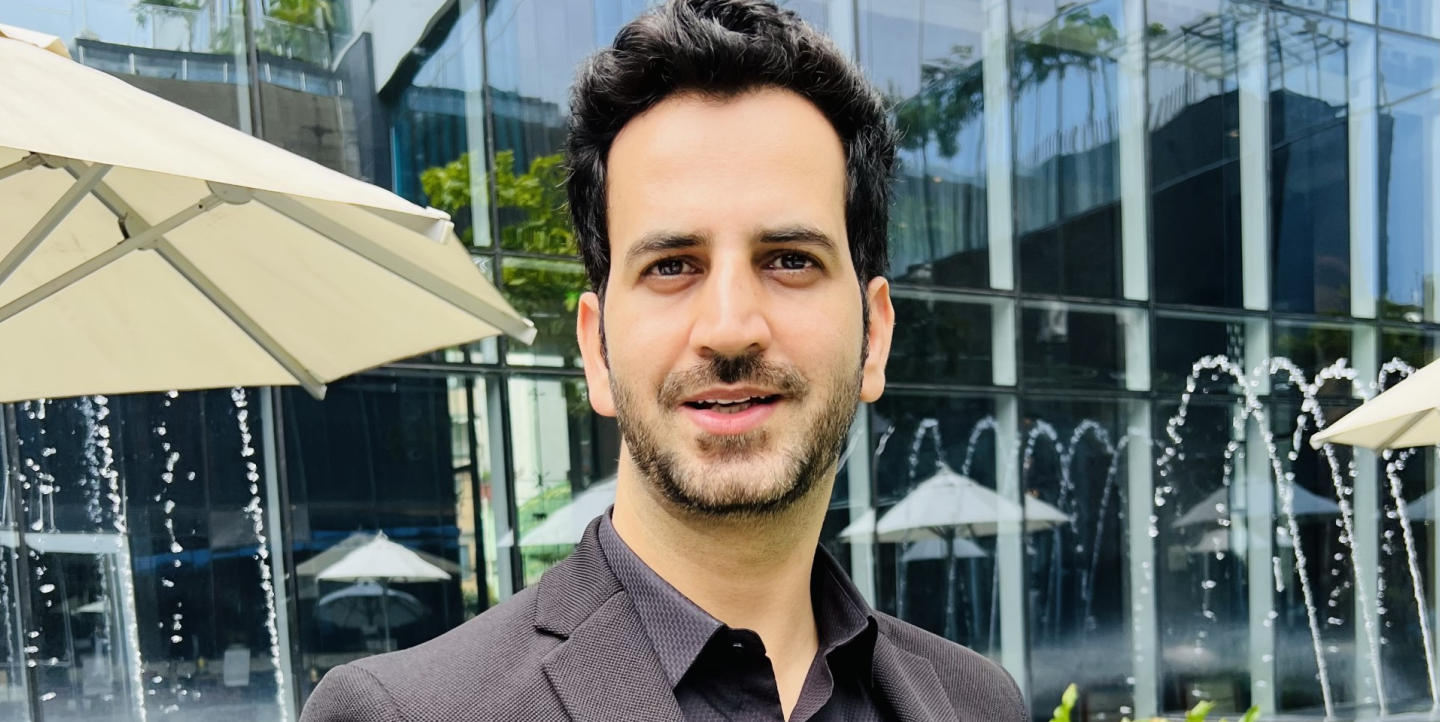Kashmir-based science journalist Shakoor Rather always possessed a knack for writing, but he chose to study science in college instead. He felt that something was missing from his studies, however. When deciding on a graduate degree to pursue, Rather took a chance and entered the selective mass communications and journalism program at the University of Kashmir.
During the program, Rather realized that a newsroom was where he belonged. He attended a workshop hosted by the BBC World Service where he learned the foundations of being a journalist, and later he joined the Indian Express newspaper at their bureau in Srinagar, the summer capital of Jammu and Kashmir.
Rather also volunteered as the media relations manager for Indian Youth Climate, where he encouraged young Indians to advocate for solving environmental problems. Coming from a science background, climate issues have always been close to his heart. Rather has also witnessed first-hand the impacts of climate change in Jammu and Kashmir, for instance around changes in rainfall patterns and increases in temperatures.
Rather co-founded the Science Journalists Association of India, which was officially registered as a society in September 2021 to boost science journalism and communication. He also authored a novel, Life in the Clock Tower Valley, about Jammu and Kashmir.
After graduating, Rather began working at India’s largest news agency, Press Trust of India. Today, Rather intertwines his two passions, shedding light on environmental issues in his community through his reporting.
I spoke to Rather about being a science journalist in Kashmir, what it's like to report on international conferences covering climate change, and the importance of engaging youth on climate issues:
What is it like being a science journalist in Kashmir?
When I became a science journalist 10 years ago, a lot of people [asked] ‘is this even journalism?’ because of the nature of stories and the concept of journalism that we all have, especially in this part of the world. But over the years, that changed a lot and now I see a lot of people in Kashmir taking up science and environmental journalism, which is really heartening. I'm happy to say I started [the science reporting] desk at PTI India around 2013 and I'm still here.
What are some challenges you have faced?
One of the biggest challenges was that science journalism was not taken very seriously by people. Scientists were not very forthcoming, they didn't feel the need to share their work.
Now, we can write about their work and still ask journalistic, critical questions of their research. It’s tricky, because scientists are not used to a lot of counter questioning of their own research. Another challenge is talking to your editors about how this particular science story is important, as the editor is [often] also from a political background.
As the co-founder of the Science Journalists Association of India, what inspired you to start this company? What are your goals for the company?
India is a huge country, but unfortunately, we didn't have a science journalists association which could look after our interests. [This is needed] because a lot of science journalism involves [reporting on] politicians, bureaucrats and big companies.
We wanted to have a community where the real science journalists would be heard, problems could be solved and they could channel their grievances through this platform.
In the past, you volunteered as the media relations manager for Indian Youth Climate. Why do you think it is important to inform the youth on what is going on in the community?
The future belongs to the youth, and if we don't take youth into consideration while making decisions, there is going to be [a gap].
We need to ask them what they want. Youth want community participation. They want their issues to be addressed. And they want that inclusiveness alongside others that they see in policy making.
You’ve reported at many international conferences, including on climate change. How have these experiences shaped your thoughts on raising awareness on this issue?
When you report from a conference like [at the UN], it gives you a very holistic perspective on what is happening on climate change, because when you are working from a certain area, you don't know how the [rest of the] world is perceiving climate change. You meet the policymakers, the activists and the representatives from the government and you listen to their issues and see the universality of climate issues throughout the world.
You think, ‘how can the world come to a platform and find a solution which is inclusive of all?’ So that reflects in your reporting as well. Otherwise, you are reporting on climate from a one-dimensional perspective.
What inspired you to write your novel, Life in the Clock Tower Valley? What do you hope readers take away from it?
While I was doing my master's, there were a lot of political upheavals happening in Kashmir. Sometimes we were restricted inside and we couldn't go outside. All these thoughts kept building in my head, and the best way I [thought] to tell [this] story is to tell it in a fictional way.
Life in the Clock Tower Valley is about Kashmir’s pristine past, always uncertain future, and present. But I tried to include a lot of environmental and domestic issues. People are at the front and they are the protagonists of the story.
How have you used IJNet to help your career?
Many of the fellowships that I received, I first saw on IJNet. I also saw the different kinds of tools that can be used by journalists and stories about other journalists.
It's a very holistic website, where the journalists can find different things which can help them grow, and personally it helped me rise in the field of journalism.
What should journalists globally know about Kashmir if they find themselves reporting on the region?
Kashmir has a lot of stories to offer, not just politically, [but also] in terms of the environment. There is scope for solutions journalism, peace and conflict studies, and peace- building stories. Everywhere you go, you'll find a lot of stories. It's a storyteller's paradise in that sense.
Photo by Shakoor Rather.


